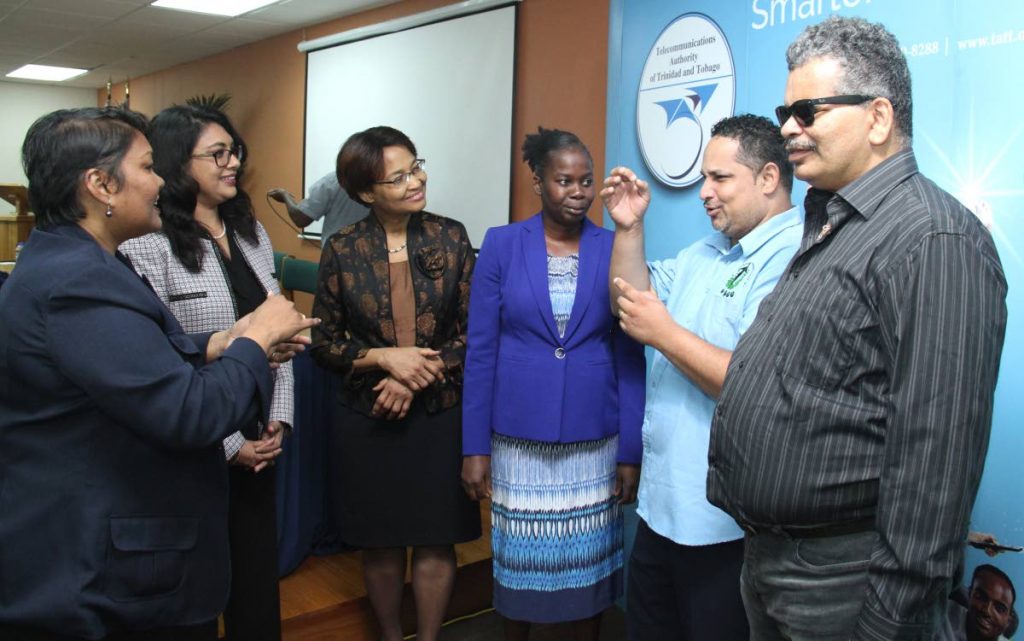Communication devices for people with disabilities

THE Telecommunications Authority of TT (TATT) is helping visual- and hearing-impaired people to improve the quality of their lives by giving them access to cell phones with features that are tailored for them.
That was the main objective of the People with Disabilities (PwD) Subsidised Accessible Devices Project which was launched at TATT’s office in Barataria on Tuesday.
The pilot phase of the project runs from August to December, with the provision of mobile handsets to 100 visual- and hearing-impaired people who were chosen after consultation with PwD organisations.
TATT deputy chairman Dr Kim Mallalieu said feedback would be solicited from stakeholders during the period to improve the project’s processes and systems before full roll out.
The roll-out is expected to begin in November and continue over a two-year period. Full implementation of the project will involve the provision of mobile handsets to members of the hearing- and visual-impaired population who meet the project’s criteria.
Those include being a citizen of TT, being 18 years or over, being the recipient of a disability grant from the Social Development Ministry and being able to provide evidence of their disability either through a medical certificate or a doctor’s report.
TATT will subsidise 90 per cent of the cost of the mobile handsets up to a value of $540. The handsets will be provided by TSTT and Digicel. Next week, customer service representatives from both companies and TATT staffers will be trained in sign language to be able to better interact with visual- and hearing- impaired people who will be beneficiaries of devices under project.
Mallalieu said by providing those people with access to affordable basic mobile telecommunications services, it would “enhance the quality of their lives and promote independent living.”
The devices will be equipped with accessibility features for the visual- and hearing-impaired.
Social Development Ministry disabilities affairs unit director Sharon Rogers said the project was in sync with Government’s efforts to promote the rights of people with disabilities through its Vision 2030 national development strategy.
National Centre for People with Disabilities CEO Dr Beverly Beckles agreed the project was the first step towards greater empowerment of people with disabilities.
While providing greater access to digital technology could improve the lives of people with disabilities, Beckles said it could also leave them behind if the process was not done properly. She observed that many websites were inaccessible to people with disabilities.


Comments
"Communication devices for people with disabilities"